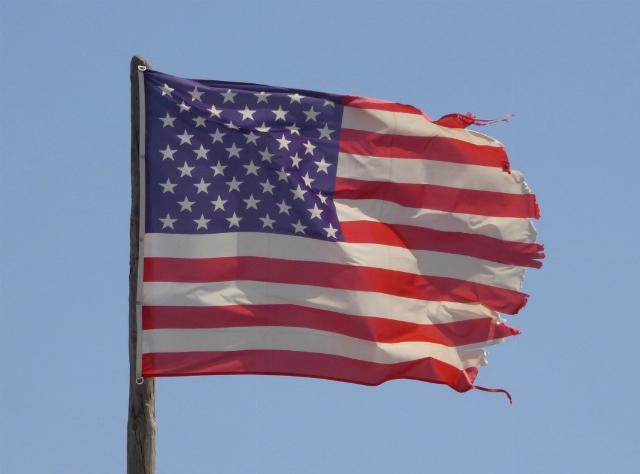by E. Jeffrey Ludwig, American Thinker:

After witnessing the first detonation of the atomic bomb in New Mexico, J. Robert Oppenheimer, a brilliant Princeton University physicist who helped lead the Manhattan Project, remembered a line from the Bhagavad Gita and compared the explosion’s brilliance to a thousand suns. He uttered these haunting words, “I am become Death, the destroyer of worlds.” This deplorable writer has a similar sense when looking at the implosion of institutions and values in the USA. This implosion is multi-layered, covering philosophical, theological, legal, and political institutions and values over a long period of time.
TRUTH LIVES on at https://sgtreport.tv/
The most noteworthy philosophical change is the comfort level of political and non-political discourse with the philosopher Frederick Nietzsche’s “transvaluation of values.” Under Nietzsche’s rubric, philosophy was tending away from overarching biblical values defining Western civilization in the direction of a complete renovation, whereby what had been considered good would be considered evil and vice-versa. In Nietzsche’s masterwork, Thus Spake Zarathustra, Zarathustra is coming down a mountain and encounters a wise man and is surprised that this wise man does not know that “God is dead.” What follows from this “death” is that morality, which derives from belief in God, is transformed and reversed. Values are being transvalued as we look forward to a new type of humans, the übermenschen, who will exemplify the new value system.
This transformation of the moral landscape has been actively underway in the USA since the 19th century, notably in the philosophy of Ralph Waldo Emerson. The philosophy building on the campus of Harvard University is named after Emerson, who was a professor there. Emerson’s mystical transcendentalism was influenced by the idea of the Oversoul from Indian philosophy and would eventually influence the theosophists such as Madame Blavatsky and Annie Besant.
According to Emerson, the Oversoul is the source of all truth and wisdom, and it is through our connection to it that we can achieve spiritual growth and enlightenment. It can be accessed through meditation, and it is also the realm through which souls travel after death, looking forward to successive reincarnations.
In addition, Emerson was influenced by the English romantic poets, who tended to deify nature. A psychoanalyst who supervised me when I was a counseling intern at a Canadian mental hospital fifty years ago said to me that our human lives mirror the seasons of nature — spring, summer, fall, and winter. We burst into life (spring), flourish for a time (summer), begin to decline (fall), and move lastly to our stages of collapse and death (winter).
Although I was an atheist at the time of my internship, surprisingly and with no previous use of the word “salvation,” I asked him, “What about salvation? Where does that come into your metaphor?”
Without hesitation, the good doctor said to me, “Salvation? There is no such thing as salvation.”
I replied, “But there must be salvation! We not only mirror nature, but there is an important sense in which we transcend nature!” He was so annoyed by my insistence that he stood up and walked out of his office, leaving me sitting in my chair alone in front of his desk.
In 1859, Charles Darwin’s On the Origin of Species was published. Only eleven years earlier, Karl Marx and Fredrich Engels had co-authored and published the Communist Manifesto, which would be followed later in the 19th century by Marx’s Das Kapital. Marx’s ideations were preceded and to some degree grounded in the speculations of Georg Wilhelm Friedrich Hegel, who in 1807 had challenged most of the assumptions about the mind and the universe that inhered in Lutheran theology.
Read More @ AmericanThinker.com



